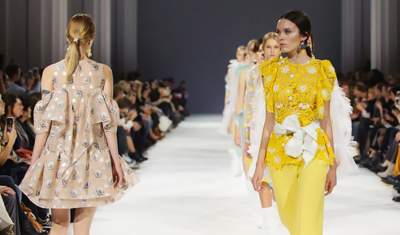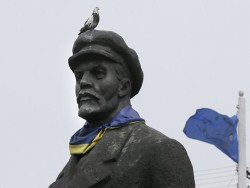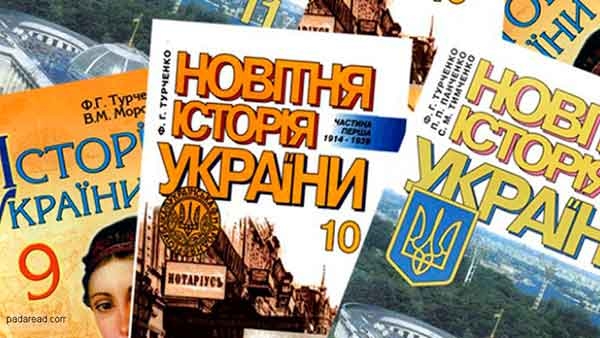Otherwise, our country risks losing the “independence” forever

“Free press” continues the discussion “Russian world after the Russian spring”. It already took part Alexander Shatilov and Igor Strelkov. The conversation takes a direct participant in the events of the Russian spring, the President of Fund of historical researches “Foundation” Alexey Anpilogov.
“SP”: — is it Possible to say that over the past two years, the regions of Ukraine, which we have traditionally attributed to the Pro-Russian, largely lost this property? Recently, the Ukrainian political scientist Michael Pogrebinsky has declared that “Russian Dnepropetrovsk” from where you come from, “soaked”. Whether you agree with it?
— We must understand that all of Ukraine is a territory very heterogeneous in the degree belonging to the Russian world. A lot depends on when any territory became part of the Russian Empire. The logic is simple. Pro-Russian sentiment in Dnepropetrovsk is much more powerful than in Vinnitsa or Lviv, but is much weaker than in Donetsk or Lugansk, which legally became Ukraine only when the Soviet regime.
With specific regard to Dnepropetrovsk, until recently, he was really one of the centers of Russian identity in Ukraine. This was due to a number of specific circumstances — in Soviet times it was a closed city. The military, primarily rocket scientists. Even the signs on the highway were there only in Russian language. But after the Soviet collapse, the city began to lose its Pro-Russian orientation. Closed factories, scientific research institutes. The creative intelligentsia, mostly otnositsa themselves to the Russian world, there are very few. Now Dnipropetrovsk — a city of bankers, shopping centers. The tone is set by commoners who are little attracted by the geopolitical idea of a joint project with Russia. This explains why Dnepropetrovsk was the least active of all the regions of the South-East during the wave of Pro-Russian shares in the spring of 2014. Nevertheless, there were mass rallies in which I participated. Yes, it is because the Pro-Russian factor in Dnepropetrovsk was weaker than in the same Donetsk or Kharkiv, armed actions there is not reached.
“SP”: — And if to speak about other regions of the Southeast?
— We must understand that we live in a time when to create a new artificial identity is possible within one generation. If not biased view on the Russian and Ukrainians, differences between them than between the Bavarians and the Saxons in Germany.
And in this sense it is characteristic that the majority of participants of Russian spring in Ukraine, it’s people who grew up in the USSR. Then Kiev was seen in the same Russian city as Moscow or Voronezh. The younger generation even in Donetsk and Lugansk, has largely managed to convince that they live in Ukraine, which should make the “European choice” and as hard as possible to distance itself from Russia.
In General, the conflict in Ukraine is not only and not so much ethnic in nature. You have to understand that the name Russian spring conventionally. It was attended by people of different nationalities — Russians, Ukrainians, Armenians, Jews and so on. I would call that a social explosion in the South-East of Ukraine which happened in 2014 — the hope for a better future. And then together both social and ideological, and many other motives. I call it separatism in the square. At the time Ukraine pushed for separation from the Russian world, and people Russian spring in the South-East wanted to secede from the anti-Russian Ukraine. They remembered that they are not only citizens of Ukraine, but also part of the divided Russian people.
“SP”: — That is still the majority of Ukrainians now perceive Russia as a country not only not close, but hostile?
— I would not say so. In this situation, very deep roots. View, Russia is now trying through the Minsk agreement “to drive the DPR and LPR back to Ukraine. In 1991, Russia has refused the Imperial project. The most mass anti-Soviet actions took place in Moscow and Leningrad. And thus we would have given the nod to in the former republics of the Soviet Union formed the nation state. As for Ukraine, then do it to the end failed. Just events of the past two years have shown that Ukraine in many ways — ephemeral education. Part of the Ukrainian elite had fled, and in its place came people like the centurion Parasyuk, open fascist Bielecki and other characters who find themselves now in the Verkhovna Rada.
In 2014 there was a chance to return Ukraine into the bosom of the Russian World. But Russia in the face of the elite even scared of this prospect: how is it that we just healed a certain independent life, and then we will have to answer for our immediate neighbours and relatives. We saw that our compatriots in Ukraine were shot, bombed, burned. And support for citizens of Russia national liberation uprising at that time was huge. People collected on its own initiative millions of rubles, sent them to help the militia. This caused great fear in the Russian elite, which built his cozy world with a gas pipe, which can be good live.
And then it turns out that there are still some Russian world. What is happening in Ukraine, it is not only the trouble of the Ukraine, but also Russia, which, after leaving the post-Soviet space, left around its borders, the most severe ideological vacuum. And the sleep of reason, as is well known, produces monsters.
“SP”: — how Long quarreled Russian and Ukrainian events of the past two years in the South-East?
— This is a complex issue. In modern history we will not see one example where parts of one nation was inoculated other hostile identity. The most typical division of Serbs and Croats, who speak dialects of the same language. Serbo-Croatian opposition was radically strengthened during the Nazi occupation, when Hitler encouraged the nationalists of both peoples — the ustasha and the Chetniks. A similar separation occurred on Bulgarians and Macedonians. In the face of massive propaganda to create a new identity easier. Among Ukrainian soldiers in the area of so-called ATO lot of immigrants from South-Eastern regions of Ukraine. Just many people in Western Ukraine do not want to fight, believe that this is a civil war Russian with Russian.
Russia should not look at it blankly. As a minimum, should create a dedicated TV channel broadcasting in Ukraine, a network of radio stations. Who prevents us to help create, for example, a powerful radio station “Free Donbass” on the territory of the DPR or LPR? If you now make the cultural expansion, against the background of the deteriorating economic situation in the “square” we can achieve great results, and not to give to finally turn Ukraine into an anti-public education. It will take time and money, but inaction will cost us more. We can obtain approximately the same situation as the Serbs and Croats.
Russia’s attempt to absolve themselves of responsibility for Russian world turns around the fact that at the same Black sea fleet is created, where will the Ukrainian ships and NATO ships. And the military of the Alliance had almost uncontrolled access to the Ukraine. It is naive to think that with the help of the Minsk agreements to stop the process.
We, the Russian should remember that for the Eurasian space, we always carried educational, cultural mission. I worked in Tajikistan and know what a modern Tajikistan, as he requires now that Russia, which in the 20th century helped build hospitals and schools in villages, to create the industry.
“SP”: — And will there be enough strength in the Russian people after all the turmoil of the twentieth century to continue the mission of which you speak?
— You will see how to animate our people in the midst of the Russian spring. Russian people is very important to understand that they are not just creating a product, but do so to implement meaningful ideas. Russia is the Phoenix, which seeks and finds new meanings.








